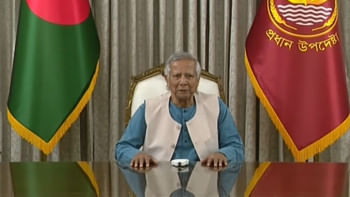Story of a subcontinent unchanged

Bollywood has implemented the idea in my mind that the world of Sharatchandra Chattapadhay is one big glittering film set. Dancers swish and swirl on marbled floors, surrounded by music, hookah and intoxicants. Every man is a zamindar or a poet while every woman is either a beautiful courtesan or a rich zamindari with kohl-rimmed eyes larger than life. Music, hookah and intoxicants are, of course, plentiful. I admit my ideas are naïve but, caught between songs that made me do the thumka and Shahrukh Khan's overly overacting, it never occurred to me to delve deeper. That is, until I started reading 'Srikanta'.
'Srikanta' is a semi-autobiographical novel of a wandering Brahmin living in pre-independent India crumbling under the weight of caste segregation, communal dissidence and the boot of British colonization.With no compass to his own life, Srikanta leads a life that is alternately freeing and constricting, molded by the women he encountered.
To be fair on the protagonist, he makes no qualms about who he is and paints a very ruthlessly honest portrait of himself. The story begins with the narrator as a little orphan boy, leading a pastoral life in a seemingly tranquil village. After being befriended by Indranath, a rebellious Brahmin who saves Srikanta from a group of village bullies, the two paddle around the river to embark on dangerous expeditions. In these adventures, Srikanta had his first glimpse of society's hypocrisy towards caste and gender. It was also in one of these adventures that Srikanta encountered Annada Didi, Indranath's high-born sister who, because of her marriage to a drunken snake-charmer, is shunned by the villagers. After the death of her husband, Annada Didi disappears into the vast Indian territory, never to be seen again. Nevertheless, her quiet patience and fortitude in the face of poverty cast a lasting impact on Srikanta's mind and for the rest of his life he sought women who would remind him of Annada Didi.
As Srikanta journeys through life trying to find the elixir to his confused soul, he encounters a host of individuals along the way who shape his ideas on life. His ideals are molded by the unique women who come and go in his life and leave a lasting impact. From the dancing girl Pyari (a woman as confused, lost and annoying as Srikanta and naturally the love of his life), to the determined Arannya who lived life following her own moral code, to the elusive Kamal Lata; each woman left her mark on Srikanta who struggles to make peace with the longings of his heart with the rigorous demands of Indian society, ultimately discarding the latter for the former.
Through the eyes of Srikanta we part the glittering veils and witness the imposition of centuries old traditions on common people and its effect on caste and gender. We see the caste system (a 'tradition' still enforced in India and many other parts of South Asia) and how it allows one man to think himself superior to his brother simply because of name. We see how women are maltreated based on religious hypocrisies and how society as a whole is united in making them helpless and marginalized.
It is the ultimate mark of Sharatchandra's genius, and a tragedy that, by writing a social narrative a hundred years ago, he captured the essence of modern Indian subcontinent that is still as regressive and cruel, with no lessons learned from the past. Perhaps, Srikanta's confusion and helplessness is a stark reflection of society, and us, as a whole. He is a reminder to us bystanders who quietly watch our world crumble around us, ineffectually screaming internally, our voices drowned by the more powerful around.
The reviewer is a fervent reader and occasional reviewer.


 For all latest news, follow The Daily Star's Google News channel.
For all latest news, follow The Daily Star's Google News channel. 



Comments